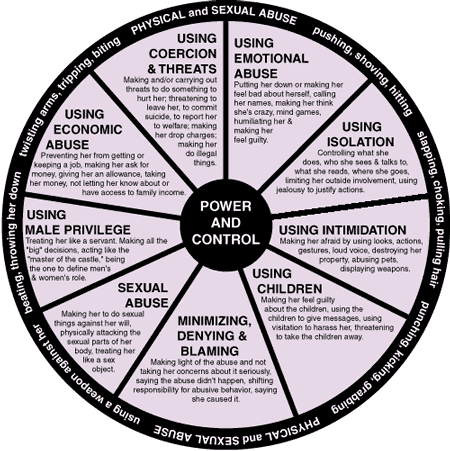“Learn to do good. Seek justice. Help the oppressed. Defend the orphan. Fight for the rights of widows.” Isaiah 1:17
“You have not strengthened the weak or healed the sick or bound up the injured. You have not brought back the strays or searched for the lost. You have ruled them harshly and brutally.” Ezekiel 34:4 (NIV)
Jesus criticized the religious leaders when He said, “And you experts in the law, woe to you because you load people down with burdens they can hardly carry, and you yourselves will not lift one finger to help them.” Luke 11:46 (NIV)
More scriptures: Jeremiah 21:12; 22:3, 15-16,Psalm 72:1,4,14
Comfort for the oppressed
“Lord, you know the hopes of the helpless.Surely you will listen to their cries and comfort them. You will bring justice to the orphans and the oppressed, so people can no longer terrify them.” Psalm 10:17-18
Other scriptures: Psalm 91:1-6, 14-16; Psalm 140:1,4,11; 2 Sam. 22:47-49; Psalm 55:16,22;
You are valuable to God!
“You made all the delicate, inner parts of my body, and knit me together in my
mother’s womb . . .You saw me before I was born. How precious are your thoughts about me, O God!” Psalm 139:13-17
“Don’t be afraid of those who want to kill you. They can only kill your body; they
cannot touch your soul. Not even a sparrow can fall to the ground without yourFather knowing it. So don’t be afraid; you are more valuable to Him than a whole flock of sparrows.” Matthew 10:28-31
“. . . Don’t you know that your body is the temple of the Holy Spirit, who lives in you and was given to you by God? You do not belong to yourself, for God bought you with a high price. So you must honor God with your body.” 1 Co. 6: 19-20
“Don’t you realize that all of you together are the temple of God and that the Spirit of God lives in you? God will bring ruin upon anyone who ruins this temple. For God’s temple is holy, and you Christians are that temple.” 1 Co. 3:16-17
Feeling Afraid
“Listen to my prayer, O God. Do not ignore my cry for help! Please listen and answer me, for I am overwhelmed by my troubles. My enemies shout at me, making loud and wicked threats. They bring trouble on me, hunting me down in their anger. My heart is in anguish. The terror of death overpowers me. Fear and trembling overwhelm me. I can’t stop shaking. O how I wish I had wings like a dove; then I would fly away and rest! I would fly far away to the quiet of the wilderness. How quickly I would escape—far away from this wild storm of hatred. It is not an enemy who taunts me—I could bear that. It is not my foes who so arrogantly insult me—I could have hidden from them. Instead, it is you—my equal, my companion and close friend.” Psalm 55:1-14
Profile of an Abuser
“As for this friend of mine, he betrayed me; he broke his promises. His words are as smooth as cream, but in his heart is war. His words are as soothing as lotion, but underneath are daggers! Psalm 55:20-21
“All your dealings are crooked; you hand out violence instead of justice.” Psalm 58:2
“For they accuse me of things I’ve never done and breathe out violence against me.”Psalm 27:12
“They will be boastful and proud, scoffing at God . . . and ungrateful. They will consider nothing sacred. They will be unloving and unforgiving; they will slander others and have no self-control; they will be cruel and have no interest in what is good. They will betray their friends, be reckless, be puffed up with pride, and love pleasure rather than God. They will act as if they are religious,but they will reject the power that could make them godly. You must stay away from people like that.” 2 Timothy 3:1-5
“O Lord, rescue me from evil people. Preserve me from those who are violent, those who plot evil in their hearts and stir up trouble all day long.” Psalm 140:1-2
“The way of a fool is right in his own eyes.” Proverbs 12:15 (NASB)
“Do not associate with a man given to anger; or go with a hot-tempered man lest you learn his ways and become like him.” Proverbs 22:24 (NASB)
Verbal Abuse
“Their mouths are full of cursing, lies, and threats. Trouble and evil are on the tips of their tongues.” Psalm 10:7
“Their tongues sting like a snake; the poison of a viper drips from their lips.” Psalm 140:3
“They come at night, snarling like vicious dogs as they prowl the streets. Listen to the filth that comes from their mouths, the piercing swords that fly from their lips. ‘Who can hurt us?’ they sneer.” Psalm 59:6-7
“They spit poison like deadly snakes; they are like cobras that refuse to listen.” Psalm 58:4
“But evil words come from an evil heart and defile the person who says them. For from the heart come evil thoughts, murder, adultery, all other sexual immorality, theft, lying, and slander. These are what defile you.” Matthew 15:18-20
See also Matthew 12:33-37 and James 3:2-10
from:SWAN – Someone Worth Accepting Now




